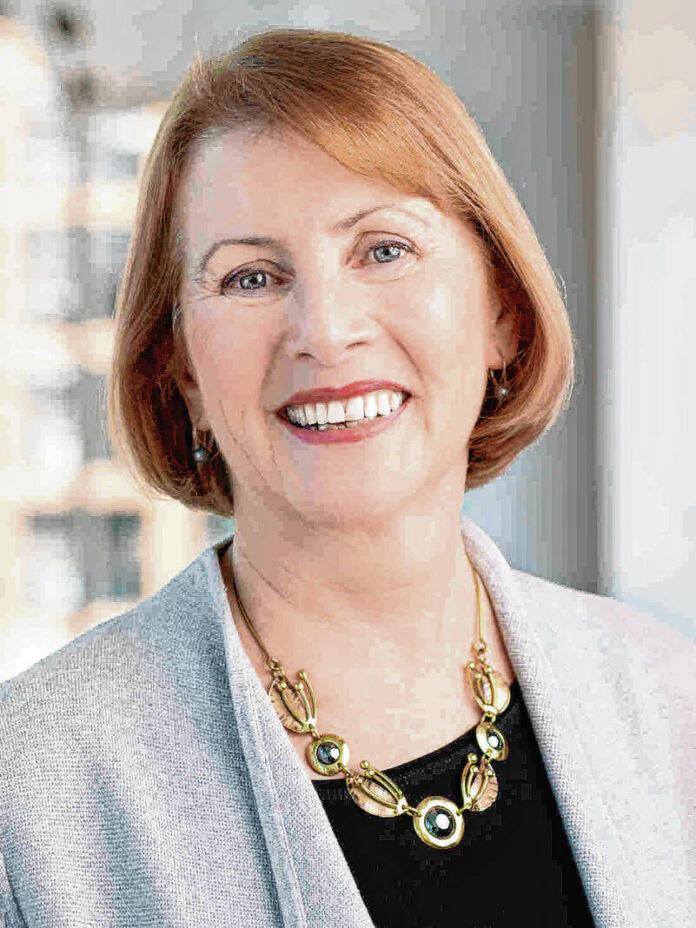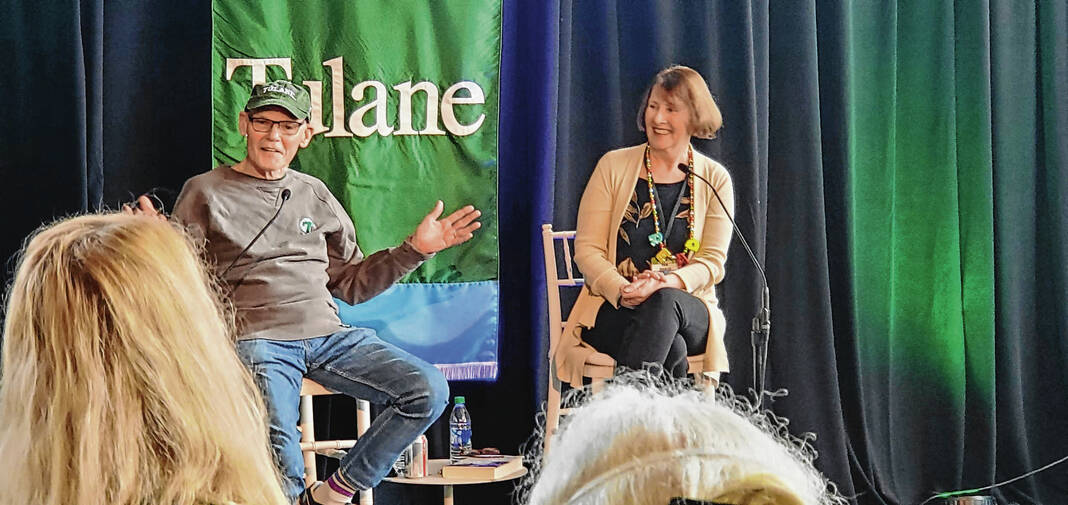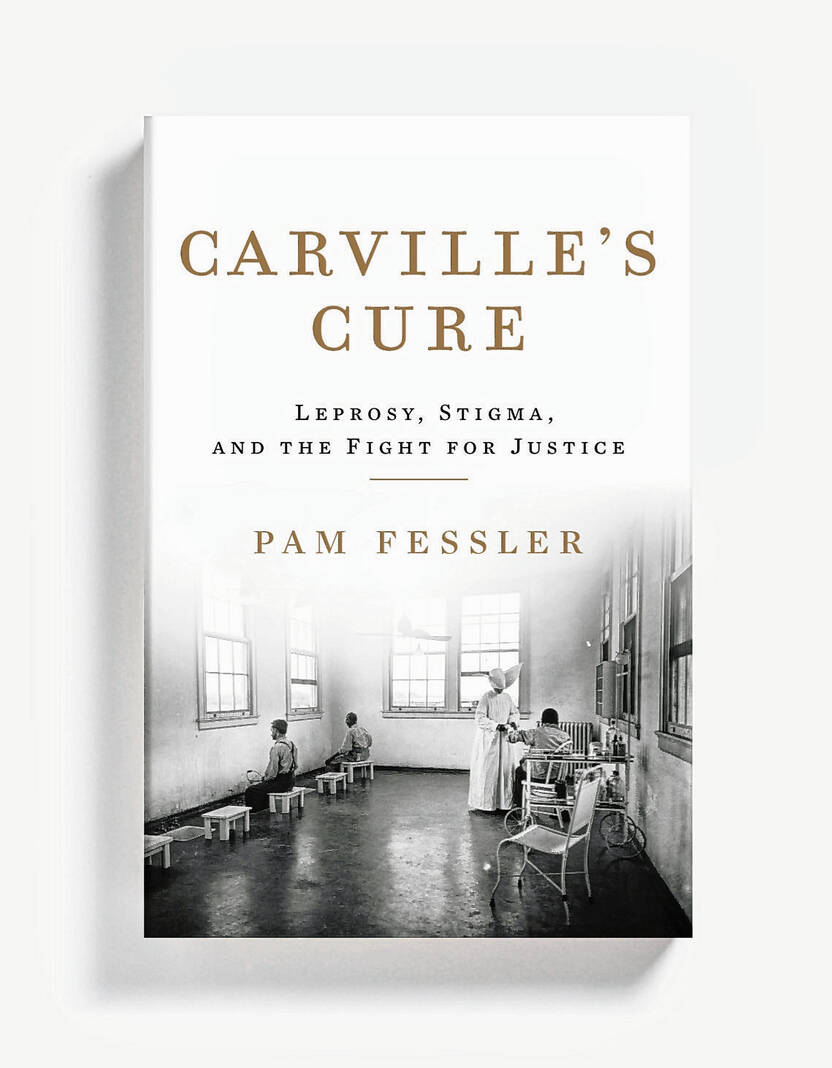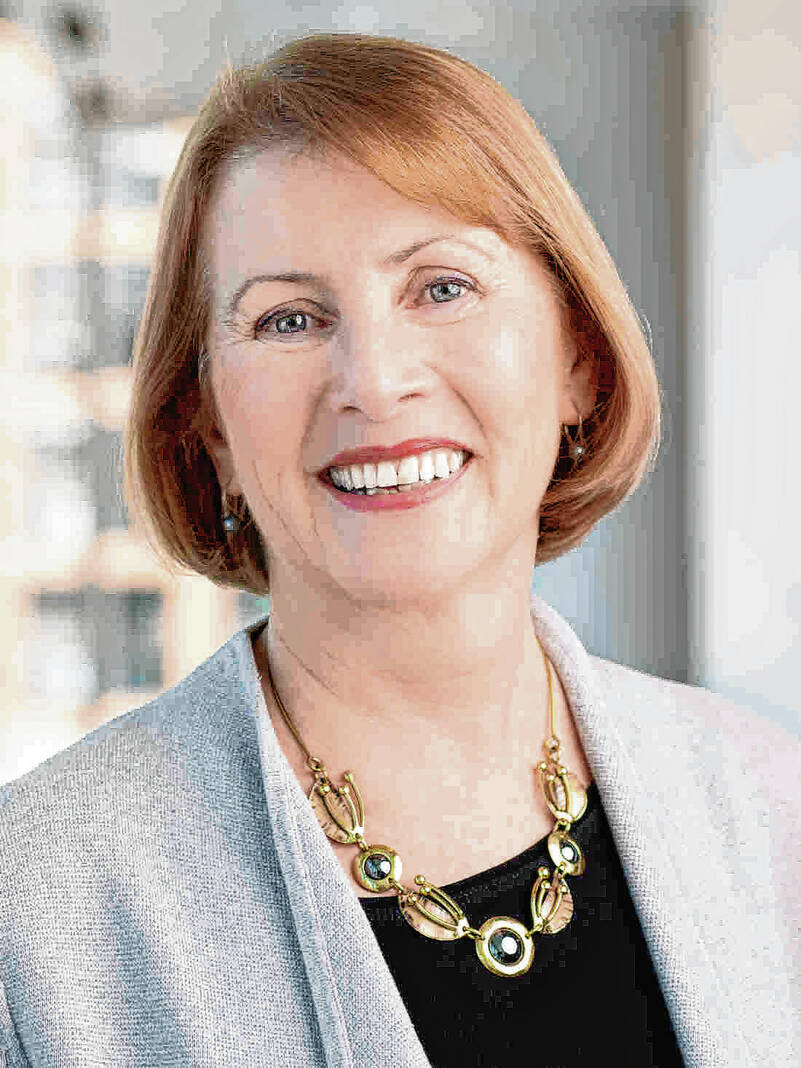The family secret had been quieted away for years.
Pam Fessler’s father-in-law had come home from school one day to find his father was gone, taken away by local health officials. He had leprosy, and was sent to Carville — the only leper colony ever run by the government in the continental United States.
For years, no one talked about what happened to him, shamed by the disease. Only recently did Fessler’s father-in-law reveal his fate.
“They kept it a secret because of the stigma. When I started researching that, I found out about this hospital, that it wasn’t just my father-in-law’s father who had been taken away and their family affected, but there were thousands of American families this happened to,” she said.
The family revelation started Fessler down a pathway of discovery, as the journalist and NPR correspondent dug into the history of Carville and the ways its patients were mistreated, but also banded together to push back against injustice.
Her work led Fessler to publish “Carville’s Cure: Leprosy, Stigma, and the Fight for Justice.” Though seemingly unrelated, the story of Carville and its patients dovetails with Fessler’s work covering civic engagement — the ability of people to use voting to protect democracy from eroding.
“It’s a wonderful example of how people who were sort of scorned by society, isolated, thrown away and abandoned by society, were able, through the power of the vote, to get empowered and get more control over their lives,” she said.
Fessler will share her experience, both with the book and reporting on voting rights, at 7 p.m. Thursday in the Branigin Room in the Napolitan Student Center at Franklin College. Her presentation, “Fighting for Justice, From Leprosy to the Ballot Box,” is free and open to the public, though registration is requested
“I hope people get a sense of how fragile some of our civil rights can be,” said Joel Cramer, chair of the Pulliam School of Journalism at Franklin College and convocation chair who invited Fessler to speak. “The concern I have is that if we don’t pay attention to what’s going on, we could find ourselves in the same situation her family was in. He did nothing wrong, but because of the policies of the time, he had to fight for the right to vote.”
Fessler had wanted to be a journalist since she was a child, going as far as to start a neighborhood newspaper with other kids who lived by her.
“I loved to write, and I loved to tell stories about what was going on around me,” she said. “Being a journalist was a way to do that. I liked to ask people questions, and I liked to listen to what they had to say.”
Throughout her career, Fessler covered Congress for 13 years as a senior writer for Congressional Quarterly, and was a reporter for The Record newspaper in New Jersey. She came to NPR News, working as an editor before moving into reporting.
During the contested 2000 presidential election, she was drawn into the world of voting and civic engagement.
“That led me to be very interested in the way elections were run,” she said. “My focus from then on was to cover this whole field of election administration, which no one was paying too much attention to, at first.”
Fessler also reported on poverty and groups of people who had been marginalized.
“I was seeing lots of examples of cases where there were large portions of the American public who were not very empowered in public policy and in getting things done,” she said. “It was the combination of those two things that got me interested in this broader issue of how people exert influence in their own society or community.”
Both subjects came into play as she started working on “Carville’s Cure.”
Carville, formally known as Gillis W. Long Hansen’s Disease Center, was in operation as a federally run national leprosy hospital from 1894 to 2005. Patients who were diagnosed with leprosy were forced to leave their homes and their families, and put into isolation with others diagnosed with the now-treatable disease.
The patients were abandoned by society and effectively had no rights. But they pushed back, and eventually, they fought to regain the freedoms they had lost, including the right to vote.
“In the first part of the 20th century, if you were somebody in the United States who was diagnosed with leprosy, public officials could take you away from your home, from your family, bring you to this hospital and essentially incarcerate you for the rest of your life,” Fessler said.
Despite the tragic circumstances surrounding Carville, Fessler found that a community took root among the patients living there. People were there for decades and started fighting to regain the rights they had lost.
“There was a law in Louisiana that if you were incarcerated in the state, you could not vote. These people were just sick, that’s all they were,” she said. “They started fighting for their right to vote, which they got after World War II.”
Fessler comes to Franklin College as part of the school’s Convocation Lecture Series. In speaking to students, staff and the local community, she hopes that her work unveiling the history of Carville inspires people.
“I want them to hear the story of Carville, and what we sometimes as a society to people who we consider the ‘other’ or ‘inferior.’ It’s often just to isolate them,” “The second message is then human resilience — what patients do, or people who are put in those situations can do to try to regain their position in society and be treated equally.”
IF YOU GO
“Fighting for Justice, From Leprosy to the Ballot Box”
What: A lecture and presentation by former NPR News correspondent Pam Fessler, who covered voting and civic engagement for more than 20 years and also wrote “Carville’s Cure: Leprosy, Stigma and the Fight for Justice,” which tells the story of the only leprosy colony run by the U.S. government.
When: 7 p.m. Thursday
Where: Branigin Room in the Napolitan Student Center, Franklin College campus
Cost: Free and open to the public, but registration is requested.
How to register: Go to www.FranklinCollege.edu/convocation








